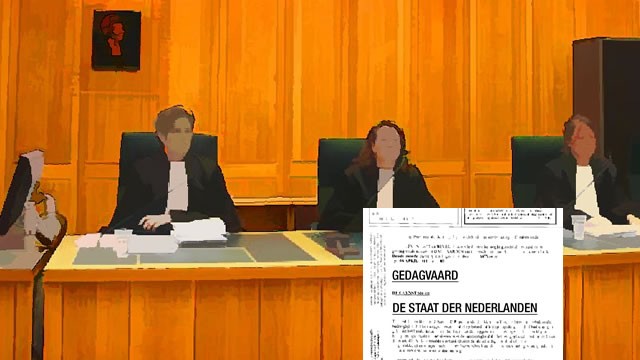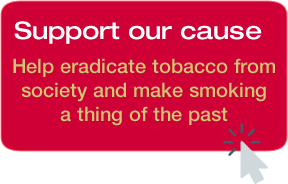Verdict in court case against the State on 9 November
13 October 2015

Does Article 5.3 of the FCTC convention from the World Health Organization relating to policies to control tobacco consumption take effect immediately? And does the Dutch State act unlawfully by not complying with the provisions of this Article? That is the key issue in the case taken by the Youth Smoking Prevention Foundation against the State, which was heard today in court in The Hague. The court will deliver its verdict on 9 November.
By the web editors
The case brought by the Youth Smoking Prevention Foundation on 8 September 2014 centres on the influence exerted by the tobacco industry on Dutch policies to control tobacco. Drawn up by the World Health Organization (WHO) in 2003, and signed and ratified by the Netherlands in 2005, the FCTC convention determines in Article 5.3 that the countries that are party to the convention must protect their policies relating to tobacco control from the interests of the tobacco industry.
Further directives covering the implementation of this Article specify what this means: in determining policies with respect to tobacco control, all contact with the tobacco industry must be avoided. Only once policies have been adopted is contact permissible concerning their practical implementation, provided that it occurs in public.
Article 5.3 is crucial
Representing the foundation, lawyer Phon van den Biesen began his address by stating that this case has its origins in the suffering that the foundation's founders, the lung specialists Wanda de Kanter and Pauline Dekker, encounter on a daily basis in their surgeries as a result of smoking. Some 85% of their patients have to contend with lung conditions caused by smoking. Asking themselves how this was possible, they discovered the big influence exerted by the tobacco lobby on policies to control tobacco.
Following the WHO, Van den Biesen argued that Article 5.3 is crucial for an effective policy to deter tobacco consumption. As long as there is no impenetrable 'firewall' between the government and the tobacco industry, the industry is able to thwart effective measures such as raising excise duty and reducing the number of sales points.
In his speech, Van den Biesen presented three arguments to demonstrate how the State acts unlawfully in this regard. Article 5.3 takes immediate effect (i.e. citizens or legal persons acting on behalf of groups of citizens in court can refer to a rule of international law) and is not, as the state advocate argued, simply an instructional standard for the State.
In addition, the European Convention on Human Rights obliges the State to protect the health of its citizens, and on those grounds the government must comply with Article 5.3 of the convention. In other words, the State shoulders blame for the 20,000 deaths caused by smoking every year in the Netherlands. In the case, the Foundation has shown how the State has failed to comply with Article 5.3, as a result of which the tobacco industry can still exercise an – undermining – influence on the development of policy and legislation.
Finally, Van den Biesen argued that the State has acted in a socially negligent manner by not implementing Article 5.3 in full.
'State does not allow its policy to be influenced'
In his address, the state advocate G.J.H. Houtzagers contended that the Dutch government has done a lot, and continues to do so, in the area of tobacco control, and he argued that the tobacco industry exerts no influence whatsoever on government policy. He disputed the direct application of Article 5.3 as well as the legitimacy of an appeal to European legislation on human rights.
But even if Article 5.3 does take effect immediately, he added, then the Foundation's demand is actually unnecessary, because in drawing up the memorandum 'Verduidelijking invulling artikel 5.3 WHO-Kaderverdrag' (in Dutch), the State has complied to 'a very high degree' with this Article. The Foundation, however, argues that a number of issues in this clarification are still too vaguely formulated, as it has already pointed out in a separate item on the website TabakNee.
The court will deliver its verdict in a public session at 15:00h on 9 November 2015.
For more information about the case, click here and here.
Download the complete summons (in Dutch)
Download the address by Van den Biesen (in Dutch)
Download the address by the state advocate (in Dutch)





 Rookpreventie Jeugd is registered as a Public Benefit Organisation.
Rookpreventie Jeugd is registered as a Public Benefit Organisation.